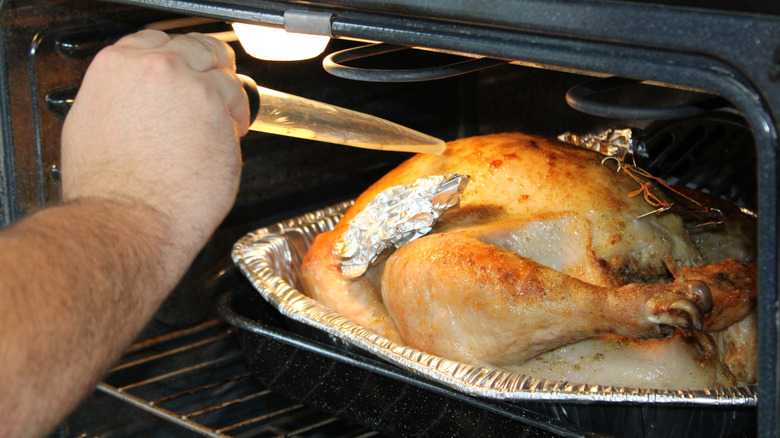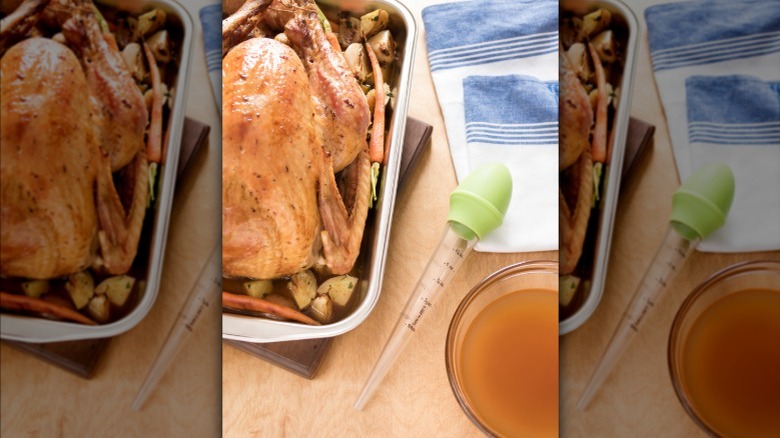The Pros And Cons Of Using A Plastic Turkey Baster
We may receive a commission on purchases made from links.
A turkey baster is one of those kitchen utensils that becomes indispensable once you've tried it. Of course, it makes easy work of basting a whole turkey with drippings from the roasting pan (guaranteeing that the skin turns a golden brown and the flesh remains succulent and juicy). However, you might be surprised to hear that it's also a nifty tool for separating eggs, removing scum from broths, and filling muffin pans. You can even use a turkey baster to extract grease from ground beef. Our favorite basters are made from a range of materials (such as stainless steel, glass, and silicone), but when purchasing a turkey baster for the first time, is a plastic option the better way to go? We've weighed the pros and cons.
A plastic baster is definitely the best option for gauging the amount of cooking fat drawn up into the tube of your utensil because it's transparent. You can simply look at the markings along its exterior to measure exact volumes with ease. Metal basters, on the other hand, are opaque, which means you have no way of knowing how much of the meaty juices from the pan you've extracted. While glass turkey basters are made of a clear material, they can crack or smash on impact if accidentally dropped, making plastic basters a safer and lighter option if you have a case of the butterfingers. Plus plastic versions, like this Norpro plastic nylon baster, are more affordable than glass and stainless steel options.
Plastic turkey basters aren't as durable as stainless steel options
One thing to consider with plastic turkey basters is that they can become damaged over time if they're run through repeated dishwasher cycles. Indeed, some manufacturers recommend that you hand wash them to boost their lifespan even though they're made of heat-resistant material. Plus, they aren't as strong or as durable as their stainless steel counterparts, which don't rust or stain. Some people also prefer to use glass turkey basters to avoid the potential risk of the chemicals in some plastic products, such as BPA, from leaching out into foods if they become heat damaged or scratched. Having said that, there are BPA-free turkey basters available online.
There are many ways to baste a turkey without using a baster, such as using a spoon to ladle the fat over the skin or spreading the drippings across the bird with a pastry brush, however, the length of a proper baster allows you to safeguard your hands from the heat of the oven. It's also faster to use a baster because you can draw up lots of fat in one go and distribute it across your dish easily instead of repeatedly scooping up the juices with a spoon.

